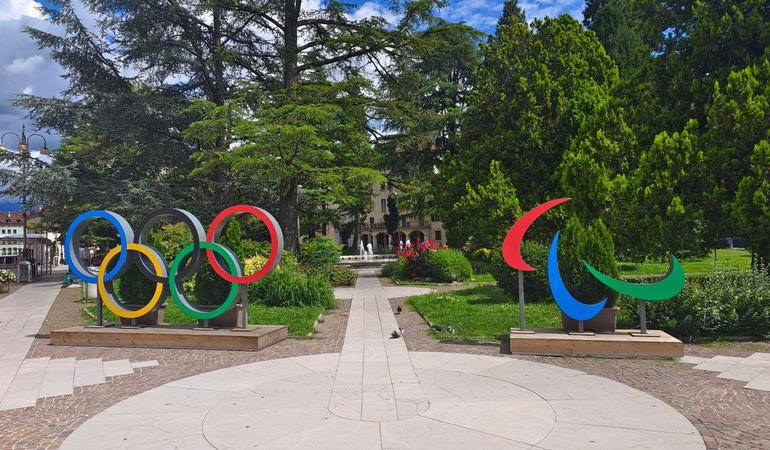
Milano-Cortina. Ecco come verranno spesi i 450 milioni di euro delle paralimpiadi


12 settembre 2023
On 3 May, Operation Eureka, carried out by the Carabinieri and coordinated by the Reggio Calabria District Anti-Mafia Directorate, led to the arrest of 108 people in Italy, 30 in Germany and 13 in Belgium, as well as the search and seizure of documents. The investigation is the result of cooperation between two European agencies, Europol and Eurojust, which coordinated the agreed action with the ten countries involved: Italy, Belgium, Germany, France, Portugal, Slovenia, Spain, Romania, Brazil and Panama. This cooperation did not come out of nowhere, but had been in the pipeline for about three years.
Europol and Eurojust have an agreement with the National Anti-Mafia Directorate in the Empact project, which focuses on the Calabrian 'ndrangheta and the Sicilian mafia, criminal groups considered to be high risk even outside of Italy. Eureka reminded Europe of the 'ndrangheta's presence abroad, in the most typical form that this mafia takes outside Calabria: individual clans working in partnership for illicit activities, primarily drug trafficking, thanks to a dense network of cross-border associates. Eureka is the result of years of compromises and difficulties in practical and conceptual cooperation between European and Italian institutions. It is an operation against the most important Italian mafia, known for its unprecedented mobility. But which 'ndrangheta are we talking about? And what does Eureka tell us about them?
Read the original version in Italian
The people involved are linked in various ways to two clans, members and associates of the Nirta-Strangio of San Luca and the Morabito-Palamara-Bruzzaniti of Africa. Both groups come from some of the most historic strongholds of the Calabrian Mafia, located in the Ionian area of Aspromonte, in the province of Reggio Calabria. They can be considered two of the royal dynasties among the founding clans of the 'ndrangheta, as their presence and dominance in the area and within the criminal organisation is undeniable. They are also among the main players in cocaine trafficking on the continent: their links with Albanian-origin networks for the importation and logistics of drugs, as well as with other local networks in northern Europe, are clearly highlighted in the investigation.
The Morabito-Palamara-Bruzzaniti of Africa have built their reputation on large-scale cocaine imports, also thanks to brokers as Rocco Morabito (nicknamed "the cocaine king"), arrested in Brazil in 2021. The Nirta-Strangios were involved in a feud against the Pelle-Vottari-Strangio clan (also from San Luca), which led to the 2007 massacre in Duisburg, Germany. The presence of these clans across the border is therefore nothing new. Indeed, one of the first elements to emerge in Eureka is the importance of cross-border notoriety, particularly in the case of the San Luca groups. The pre-trial detention order refers to the international notoriety of the so-called Erfurt group, in particular, that linked to Domenico Giorgi (known as "Berlusconi" for the wealth he has amassed from drug trafficking), to the perceived impunity of the San Luca clans, which are still very active, and to their wealth. Two men, intercepted in 2016 but not involved in the Eureka investigation, spoke of Giorgi in these terms:
"Think how long this one have been in Germany. They haven't done anything to him. Six people [but] were killed but they are always the winners — they are as tough as savages. And then they have another [restaurant] that was confiscated. They have four here in Germany and one in Lisbon, Portugal. They have nine premises, what should they take from them? They spend at least a hundred thousand euros a day. Just in the one where we are going now they take fifteen thousand euros a day; fuck them! They are doing business, but now they are making money from clean business.”
The Eureka investigation reveals the borderless business of the 'ndrangheta
A second key element of the research is how the 'ndrangheta and its structures are described and perceived in the Calabrian towns of Bianco, San Luca or Africo and in Europe. In Calabria, they speak of criminal strategy, reputation, criminal and social recognition, “respect,” while abroad they speak of managerial capacity, large quantities of drugs, money to move, ports to enter, and corruption to maintain. The peculiarity of these trafficking groups in the Old Continent lies precisely in their ability to exploit the global opportunities of a market as rich as the cocaine market without losing the local identity of their own territory. The interrogation of an entrepreneur illustrates this duality between local power and global reputation:
"I'm doing it [investing] here in Calabria because there is a lot of drug money because Calabrians are more famous than Pablo Escobar all over the world for cocaine trafficking. You think that the people who live here have no money, but they have more money than the banks.”
A third element of interest in Eureka is the possibility of bringing people and money back to Calabria, which enhances the organization's local and global reputation and recognition. We read, for example, about how the return of money helps the clans to maintain control over the territory. On February 23, 2021, informant Rocco Mammoliti explained this to investigators:
“I know for a fact that in the 1990s a community of Sanlucoti invested huge amounts of capital from Germany in Ardore, where they bought large plots of land and buildings. They are the Pelle and Giorgi 'Ciceri' families.”
Regarding returnees, attention must be paid to individuals - mafiosi and non-mafiosi - who come back from abroad after close ties with overseas branches of the 'ndrangheta, as it has been the case in some Australian occurrences: the 'ndrangheta down under, the honored society in Australia, has long experienced this form of both-ways mobility.
These returnees are not isolated cases: it is important to ask what they bring home and how their return reshapes the organisation. Reputation and criminal recognition — both in terms of mobility and return — characterize the 'ndrangheta depicted in Eureka. The Calabrian mafia preserves its traditional roots while drawing strength from reaffirming its power and its capacity to survive and adapt within an increasingly borderless Europe, even in peripheral Calabria.
La tua donazione ci servirà a mantenere il sito accessibile a tutti
La tua donazione ci servirà a mantenere il sito accessibile a tutti